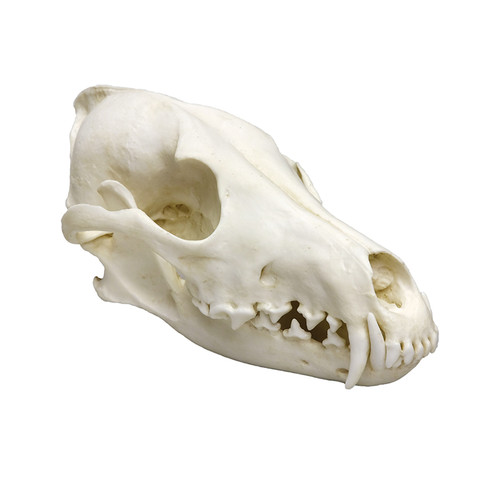Short nosed echidna.
Tachyglossus aculeatus.
The short-beaked echidna is native to Australia and Tasmania.
Its common name, the spiny anteater, refers to its porcupine-like quills and its long, pointed beak.
From this toothless beak, it extends a six-inch long, sticky tongue to capture ants and termites.
A very fast digger, it possesses strong front claws, used for that purpose and backward curving hind legs.
The short and long-beaked echidnas join the platypus as the only mammals to lay eggs.
The female echidna deposits the leathery egg in her pouch.
The jelly-bean sized baby hatches but stays put for 6 to 8 weeks, feeding on milk its mother secretes through special glands.
When the baby starts to develop spines, it is removed from the pouch but still cared for by its mother for several more months.
1-part skull (jaw glued to cranium).







